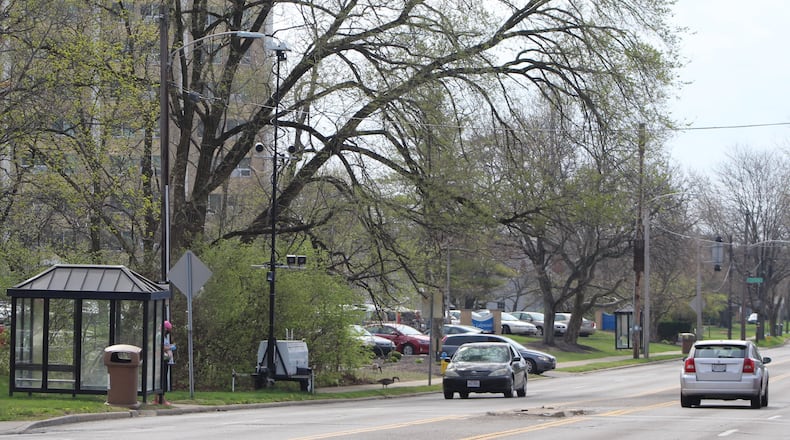A state appeals court has mostly upheld a lower court’s ruling that the state restrictions unconstitutionally limit Dayton’s legislative authority and home-rule powers.
The court decisions potentially could allow Dayton to more fully resume its traffic camera program without fear of penalties.
However, it’s unclear what the city will decide to do.
The police department says it is still reviewing the appeals court decision and it will continue to use mobile speed trailers and handheld speed detection devices mainly in school zones.
Using traffic cameras in school zones does not put jurisdictions at risk of financial penalties.
“The primary purpose of photo-enforcement along with traditional traffic enforcement is to reduce speed and other contributing factors to injury or fatal traffic crashes,” said Dayton police Lt. Col. Eric Henderson.
The city in July 2019 sued the state of Ohio claiming that provisions of Amended House Bill 62 are unconstitutional and violate home rule protections.
The bill requires that communities that use automated traffic cameras have police officers present during their operation.
The law also financially punishes communities that use photo-enforcement devices by reducing their local government fund allocations.
Cities must report to the state how much money they collected in photo-enforcement fines, and the state reduces their local government distributions by that amount.
Jurisdictions, however, will be reimbursed for traffic camera fines collected for violations that occur in school zones.
The law also eliminates cities’ ability to appoint administrative hearing officers for tickets in these cases and requires cities to provide advance deposits for filing fees and court costs.
H.B. 62 was the state’s transportation budget bill for fiscal years 2019 to 2021.
Dayton stopped using fixed-site red light and speed detection cameras in mid-2019, right around the same time the city filed its lawsuit in Montgomery County Common Pleas Court requesting a declaratory judgment and an injunction against the state.
Dayton police continued to use automated mobile speed trailers and handheld cameras primarily in school zones.
Currently, there are seven mobile speed trailer locations across the city.
In its lawsuit, the city argued the state cannot use its spending authority to punish cities for exercising their home-rule authority.
The city said the state law is designed to make photo-enforcement programs too expensive to operate.
Last spring, Common Pleas Court Judge Mary Katherine Huffman ruled that provisions of H.B. 62 violate home rule because they limit and interfere with the city’s municipal power without sufficiently “serving an overriding statewide interest.”
The state appealed the decision, and last month the Ohio Second District Court of Appeals issued an opinion largely affirming Judge Huffman’s ruling.
The appeals court ruled that the contested H.B. 62 provisions do not prescribe rules of conduct for citizens and instead unconstitutionally seek to control municipal procedures for traffic citations.
The bill’s contested provisions “unconstitutionally limit Dayton’s legislative authority regarding its traffic camera photo enforcement program, dictate the collection and reporting of fines and subject Dayton to penalties for operating its program,” the appellate decision states.
The state argued that there is no limit on the State Legislature’s authority to regulate lower court jurisdiction.
The city of Dayton previously won a different lawsuit against another state law that also imposed restrictions on traffic camera programs, including a requirement that officers be present during their operation.
In mid-2017, the Ohio Supreme Court ruled that the state’s restrictions were not general laws and were unconstitutional.
The Dayton Police Department has mobile speed trailers with automated cameras at seven locations:
· 900 block of Wilmington Avenue
· 1900 to 2000 block of W. Third Street
· 4400 block of Hoover Avenue
· 2200 block of S. Smithville Road
· 2700 block of Germantown Street
· 1000 block of W. Hillcrest Avenue
· 1300 block of Huffman Avenue
About the Author




